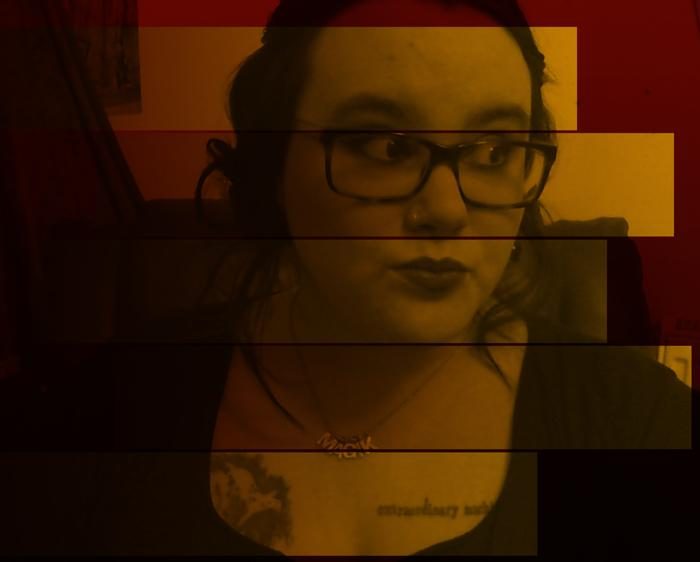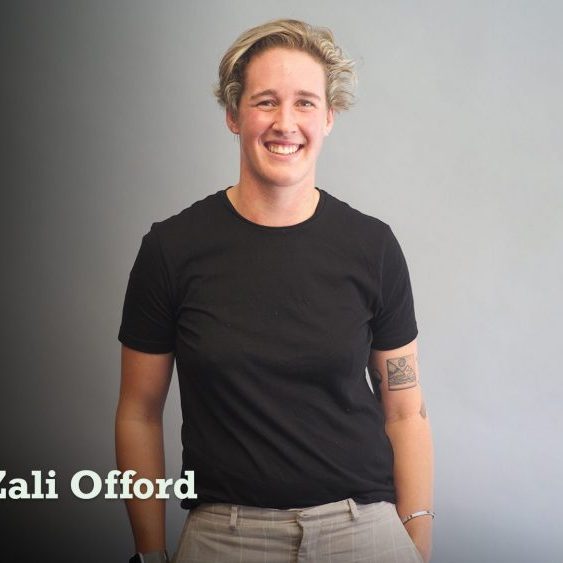
What is your human experience? The Human Experience wants your submissions.
What is The Human Experience? It is the validity of your story and the story of 7,000,000,000 other people in this world. How do you put a label on being human? You don’t. You open your heart and listen. This is the foundation of The Human Experience, a new queer publication that has launched a campaign exploring the diversity of queer identity and the human experience, and they want your submissions. Below is a submission from Franzi. Share your human experience before February 28, 2014, and you’ll be entered into the giveaway.
I am a queer, working-class, fat, mixed race, feminist, womanist, introvert, writer, nerd, fruitcake, but first and foremost, I am a human being.
I struggle to understand and adequately convey parts of my identity to others. The mixed-race daughter of a black roofer (dad) and a white sewing machinist (mum), my parents divorced when I was five, and I was raised by my single mother, who never so much as looked at another man until I was fourteen and worked tirelessly to become a medical secretary.
I have two much older brothers, my mother’s (white) sons from a previous marriage, and she and my father raised them together for ten years before I was even born. I was sorta the odd one out — quiet, sensitive, brown, female, but I had my dad, my funny, Bill-Cosby-like dad. And then I didn’t have him.
And then I didn’t have my brothers either. They grew up, moved out, all gone by the time I was seven. I envy them for their bikes and their Sunday lunches and their trips to the seaside. I always felt like that “normal” childhood was snatched away from me and replaced with an exhausted, wounded mother and lots of silence. We didn’t have a telephone or a VCR. We didn’t have a computer or a car. But we had a TV.
People assume because I’m a writer and a literature graduate, I was gaga for books as a child. And, sure, I was given a library card when I was four. I could always read at a level higher than my age, and I enjoyed reading, enjoyed impressing the teachers and my mother with how much I was learning. But while books aimed at six-year-olds contain a few simple sentences about dogs or zoos or whatever, television is vastly more complex and grown-up. I didn’t like cartoons much. My favourite shows were The Cosby Show because without my dad around I missed black culture, and Neighbours, the Australian soap from which Kylie sprung. Television inspired me to write stories, replicating the melodrama and tropes I had drummed into me. Slowly my viewing, and reading, became entirely American, and I spoke in Americanisms to the extent that a child I met on a trip to Scarborough thought I was American. By the time I was eleven, I had penned many a chapters-long story — featuring telekinesis and boys with blue eyes and girls named Meredith and Destini.
I’m quite attached to my labels. I know my response to them is atypical. I am supposed to cower in a corner yelling, “No! I don’t want labels. I’m a fucking snowflake!” But for me, labels have been what cuts through the silence. Labels have set me free. They say that labels are for soup cans, and they are because if I went down to the store and all the cans were just identical metal cylinders, I wouldn’t know where to begin. I’d have to tear each one open, taste it even, to understand what was inside. This applies to humans too. As someone who would prefer not to be torn open and devoured during everyday conversation, my labels help. They keep me safe.
Other people’s definitions of what my labels mean are less useful. When I say I am queer, I mean my sexuality is atypical (there’s that word again). Others may assume I am gay or complain that I am not allowed to use the word because I am not gay. It can be extremely frustrating to be told by others that you are not what you say you are. That you’re an impostor in your own life.
Despite my occasional run-ins with the Are You Queer Enough brigade, I’ve been lucky regarding my sexuality. I grew up in a relatively open-minded time and place. My parents have never cared whom I choose to be with. In fact, I think they see it all as rather novel. I was always encouraged to be unique and different. I am very grateful to them for that. There was one group who didn’t understand though. When I was about fifteen I fell in love with a girl I’d known all my life. Her parents, as recently born-again Christians (being religious in more than a passing sense is very uncommon in England) and generally traditional people, staged something like an intervention, without anyone there to stick up for me. It was awful and their unkindness has stayed with me ever since, reminding me that there will always be those who reject what they don’t understand.
Feminism is at the core of everything I do in life. Being a woman is the centre of my being and I relate to life through that before anything else. Being also a somewhat nerdy, intellectual type, I constantly engage with the feminist community. It can be inspiring and it can be challenging. When I was young I rejected feminism. I thought I was too much of an anomaly to belong to an organised group, even one as marginalised as feminism. I was an individualist. I still am, but in the last few years, I have seen that other women are my allies, not my enemies.
I once had a shrink who told me, “I don’t think these labels are helpful.” She sat there, slim and blonde, dressed in designer clothes, a German doctor, and I thought, “How would you know?” She was basically saying, “You’re a terrible embarrassing mess, but you don’t want to be a Terrible Embarrassing Mess.” Labels make it official. Labels make it no backsies.
The label she was trying to save me from was Borderline Personality Disorder. I could do without the label itself, which does nothing to convey my lived experience, and actually does a fair bit to muddy the waters, but until there is a new label for this truth about me, the truth I have known my whole life, from my quiet, sad, sensitive childhood to now, I am happy to slap BPD on the soup can that is me.
BPD means I’m intense and emotional, chaotic and impulsive. It also means I’m empathetic and intuitive, eccentric and creative. I cherish these latter differences and try to live through the others. Writing, reading, talking, singing, watching, these things keep my blood pumping. I channel my obsessive nature into my ardent love of television and books. I channel my intensity into writing and singing, transforming the emotions that sometimes threaten to crush me into drama, power, beauty and art.
Many of the labels I see as central to my sense of self are invisible. My race is not easily guessed. My sexuality is private. My class is definitely not obvious. My mental illness is hidden. My feminism is probably hinted at by the way I dress and act, but no one would know for sure unless I spoke to them. The one defining thing about me, the indisputable visual fact of my existence, the thing that others probably use to describe me, is the size and shape of my body. I am fat. It is not an easy subject to talk or write about, being tied up in so many complex thoughts and feelings. I certainly don’t believe that only one body shape is beautiful, but I would be lying if I said my current weight, shape and fitness level make me happy. No matter how many plus-size models I pin gorgeous images of on Pinterest, I still have to inhabit this body 24/7, and it’s not always easy or fun. I have tried to do things to accept and nurture my body. I have art modelled and I have a distinctive sense of style. I certainly don’t hide in a burlap sack or anything. I struggle, though, and wish so many times a day I didn’t have to be so visible, take up so much space. Sometimes the trouble with a label is all in what it means to you. When I was a curvy, hot mama, healthy and fit as anyone else, fat was a fun way to describe my sexiness. I hope my current path will lead me back there soon.
So, this is me — Franzi. Queer, working-class, fat, mixed race, feminist, womanist, introvert, writer, nerd, fruitcake. And a human being. Just like you. Nothing like you. Just like all of us.
—————
What is your human experience? If you submit your human experience during February, you’ll be entered into a raffle to win 2 VIP Tickets to The Dinah Shore, as well as Joss Whedon and lesbian DVD sets. Find out more about the campaign in our Curve article, If You Are Human, This Relates To You, and learn how to submit your human experience here (the-humanexperience.com).

